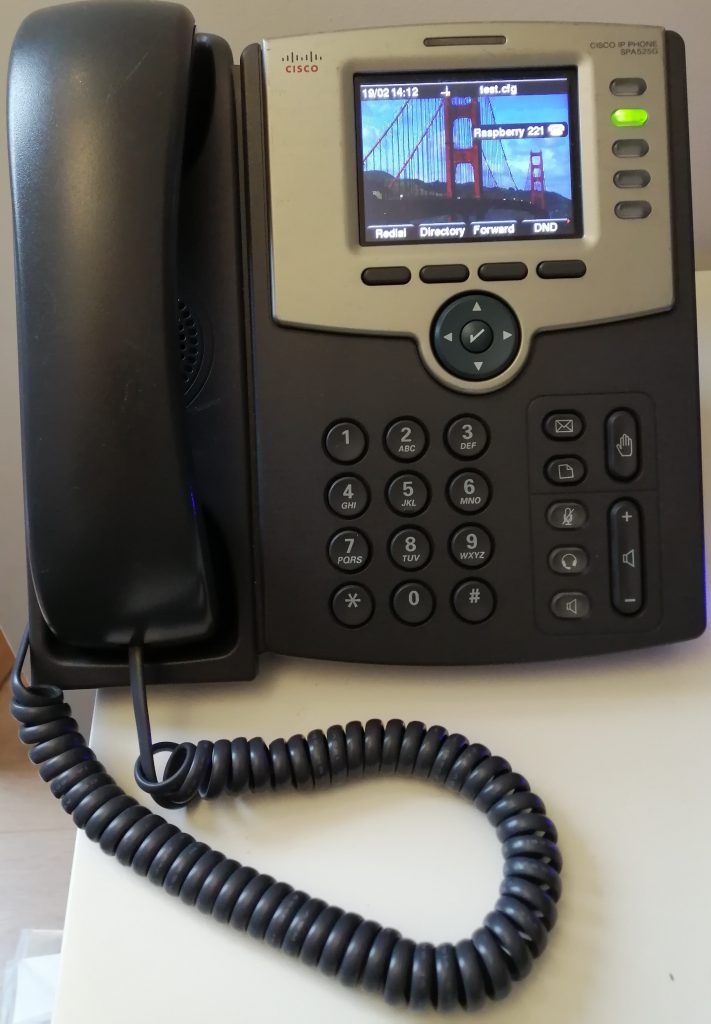Recently, I’ve bee buying used VoIP phones on eBay with the intention of making them available for free to any local charity who can make good use of them. I expect that in most cases charities could save money on phone costs by switching to VoIP, and I’m also willing to give charities as much (or as little) help as they need to set things up.
My favourite phone at the moment is the Cisco SPA525G2 (pictured below). Most VoIP phones require an ethernet connection, but in addition to that option, this phone allows the connection to the network to be made using Wi-Fi which is handy if you don’t happen to have an ethernet socket in the right place.
It has all the usual features you’d expect from a business VoIP phone plus the following
- Bluetooth – either to connect a headset or to allow this phone to make calls via a Bluetooth connected mobile phone.
- USB socket – Phone conversations can be recorded directly to a USB memory stick.
VoIP features
In addition to cost savings, VoIP makes it easy to provide features. Here are some examples
- Voicemail
- Remote working – A VoIP phone can be located anywhere, so having extensions for people working at home is easy.
- Time based routing of incoming calls – e.g. message when closed – ring phones when open.
- Divert calls elsewhere (e.g. to mobile or another phone).
- Dial Thru – For example instead of making a call directly from a personal mobile, route it via the VoIP system to the caller sees the number of the officer rather than that of the personal mobile.
- Transfer calls between extensions (e.g. answer call in one location and then transfer to a different extension which might be in a completely different geographic location).
